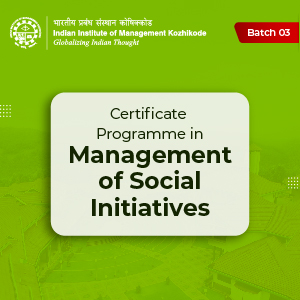Subscribe our Weekly Newsletter
Applications Invited for Build Partner Capabilities to Counter Global Biological Threats

Organization: Bureau of International Security-Nonproliferation
Apply By: 17 Jan 2025
Grant Amount: 5000000 USD
About the Organization
The Bureau of International Security and Nonproliferation (ISN) prevents and rolls back the spread of WMD, delivery systems, and advanced conventional weapons capabilities; protects U.S. critical and emerging technology; and promotes the peaceful uses of nuclear energy, science, and technology. In close collaboration with other bureaus within the State Department, other U.S. agencies, and a diverse range of international and non-governmental partners, ISN further tracks, develops, and implements effective policy responses to proliferation threats and shapes the international security environment to prevent their recurrence.
About the Grant
SN/CTR’s Biosecurity Engagement Program (BEP) seeks to mitigate global biological threats by securing and/or protecting against the misuse of high consequence pathogens, synthetic biological materials, biotechnologies, genomic data, life sciences research, laboratory infrastructure, and related equipment for biological weapons (BW) purposes, and helping foreign partners develop biosecurity policy, guidance and technical capabilities at the national and regional levels to promote the adoption or compliance with international best practices and frameworks that advance U.S. biological nonproliferation objectives.
Funding Information
- Total Funding Ceiling: $15,000,000
- Anticipated number of awards: 5
- Duration: 15 months
Objectives
BEP will support projects that build partner capacity and advance BEP’s mission by accomplishing at least one of the below objectives within the award’s period of performance. Recipients shall leverage relevant subject matter experts within the submitting organization or in partnership with other applicants to create, develop, and implement projects.
- Enhance partners’ risk assessment capacity to identify and mitigate biosecurity gaps in laboratories and bio- and data repositories. BEP programs will build risk assessment capacity by training foreign partners in risk assessment methodologies, developing and deploying risk assessment tools, and implementing small grants to immediately mitigate biosecurity gaps found during risk assessments. Mitigation options will include establishing biosecurity standard operating procedures; procuring and installing security enhancements; and biosecurity or insider threat training.
- Partners trained in risk assessment will be responsible for training others on risk assessment and for advocating for better risk management across their institutions and/or across their governments.
- Engage the synthetic biology, toxicology, and genomic research communities to build institutional mechanisms to ensure safe, secure, and responsible conduct of these life sciences. BEP programs will strengthen security of synthetic biology, toxicology, and genomic research and related data by raising awareness of proliferation threats associated with this research, training partners on due diligence practices to review prospective research partnerships (e.g., know-your-collaborator, KYC), and establishing comprehensive systems for research oversight at the institutional and national levels.
- Establish national control measures for bio- and genomic data security, including policies with oversight, enforcement, and/or reporting mechanisms. BEP programs will help partners to establish national level bio- and genomic data security policy and guidance, pathogen control measures such as select agent lists, and oversight and enforcement capacity for these frameworks.
- Promote BRM certification internationally. BEP programs will support foreign partners from across all regions to be trained on BRM and to take internationally recognized certification exams or similar forms of professional development.
- Prevent cybersecurity threats in biological laboratories, including facilities handling genomic data or relying on laboratory automation, by decreasing vulnerabilities and promoting adoption of effective risk mitigation options. BEP programs will train laboratory staff, IT managers, procurement managers, and laboratory decision makers on cybersecurity threats and risks within biological laboratories to protect sensitive biological research, data, databases, and laboratory facilities and equipment against illicit or unauthorized access, theft, tampering, or other forms of misuse. BEP programs will also support cyber hygiene training to promote security best practices.
- Increase partnership with professional associations to sustainably develop and disseminate biosecurity, research security, and know-your-collaborator guidelines and best practices. BEP programs will engage national and regional biosafety associations and related consortium to train members on biosecurity, research security, and know-your-collaborator best practices; develop curriculum and other resources on these topics; and deploy these associations to raise awareness and train biological communities across their countries and regions.
- Support the UNSGM’s ability to investigate possible BW use. BEP programs will engage foreign partners to increase technical capacity and participation in the UNSGM.
- Deny non-state actors the expertise, materials, and equipment necessary to conduct biological attacks. BEP programs, in a small number of selected countries, will train on insider threats and responsible research in the life sciences, enhance capacity to secure and safely handle high consequence pathogens, and assist partners with development of human reliability programs. BEP programs will also build capacity to identify and disrupt low effort biological attacks through biothreat detection and response trainings for first responders, forensic scientists, laboratorians, and other appropriate partners.
- Establish dialogues with industry involved in the manufacture and distribution of equipment and biotechnologies with BW-applications to help partners institute screening measures, such as KYC, to secure supply chains.
Eligibility
U.S.-based non-profit/non-governmental organizations with or without 501(c) (3) status of the U.S. tax code; foreign-based non-profit organizations/non-government organizations (NGO); Federally funded research and development centers (FFRDCs); public International Organizations; Foreign Public Organizations; U.S.-based private, public, or state institutions of higher education; foreign-based institutions of higher education, and U.S. for-profit organizations or businesses.
How to Apply
Applications are due no later than 11:59 PM Eastern Standard Time (EST), on 17 January 2025 on grants.gov under the announcement title “Build Partner Capabilities to Counter Biological Threats” funding opportunity number “ DFOP0016989” .
For more information please check the Link
Latest Online Store
Latest Tenders And EOIs
Latest News
© Renalysis Consultants Pvt Ltd

.png)























.jpg)
